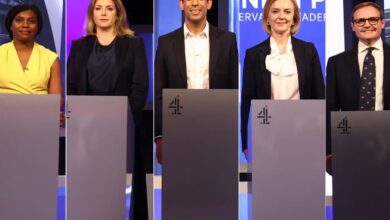Government rolls out ‘guidance’ on teaching racism in schools

The government is rolling out guidance to schools on how to approach teaching racism for the first time, following controversial ministerial intervention in classrooms.
Schools are already required to teach in a politically impartial way, but this instruction from ministers will specifically advise teacher on how to address “sensitive issues”.
The guidance comes after the education secretary, Nadhim Zahawi, waded into a debate over the teaching of anti-racism in Brighton schools last week, and ordered an investigation after becoming “concerned” by non-discriminatory resources being shared with students.
Slides from race training given to teachers in Brighton and Hove schools leaked to The Sunday Telegraph said that “between the ages of three and five, children learn to attach value to skin colour: white at the top of the hierarchy and black at the bottom”.
“Over the last few years, there has been much discussion about political impartiality in schools, often in the context of specific political issues and movements,” the education secretary said of the government’s unique guidance.
“I know that this has at times been difficult for school leaders, teachers, and staff, as they navigate how to handle and teach about these complex issues sensitively and appropriately.
“That is why I’m pleased this government is publishing clear guidance explaining schools’ existing legal duties on political impartiality.”
The manual suggests that the teaching of historical figures should focus on “factual information” about them, and that teaching of the British empire should be presented in “a balanced manner”.
One scenario refers to teaching pupils about racism and cautions that teachers should be aware that campaign groups such as Black Lives Matter “cover partisan political views”.
The recommendations say that “teachers should be clear that racism has no place in our society” when covering this topic with pupils, and should “help pupils to understand facts about this and the law”.
It adds that some campaign groups such as BLM may cover “partisan political views … which go beyond the shared principle that racism is unacceptable, which is a view schools should reinforce”.
“Examples of such partisan political views include advocating specific views on how government resources should be used to address social issues, including withdrawing funding from the police,” it adds.
The guidance says that for recent historical events, “including those which are particularly contentious and disputed, political issues may be presented to pupils”.
It also states: “This includes many topics relating to empire and imperialism, on which there are differing partisan political views, and which should be taught in a balanced manner,” adding that schools should be free to teach pupils about significant political figures, including “those who have controversial and contested legacies”.
But it adds that this may need to be reserved for older pupils, and says that it could be advisable to focus teaching on “what these figures are most renowned for and factual information about them”, if teachers think pupils may not be able to understand the full context of contested information about their lives.
The teaching of the British empire should be presented in ‘a balanced manner’, the manual states
The guidance states that when teachers are discussing the decriminalisation of homosexuality with pupils, they should not present discriminatory beliefs held at the time in an uncritical way, or as though they are acceptable today.
It adds that pupils should not be presented with views that oppose fundamental societal values, such as views denigrating freedom of speech or the democratic process.
When inviting politicians or campaigners to speak in schools, teachers should aim to invite a range of speakers with varying views, or teach directly about other candidates or political parties to promote balance.
Geoff Barton, general secretary of the Association of School and College Leaders, said: “It has never been more important to facilitate and encourage discussions about political and contemporaneous issues as it is now.
The guidance says that for recent historical events, ‘including those which are particularly contentious and disputed, political issues may be presented to pupils’





